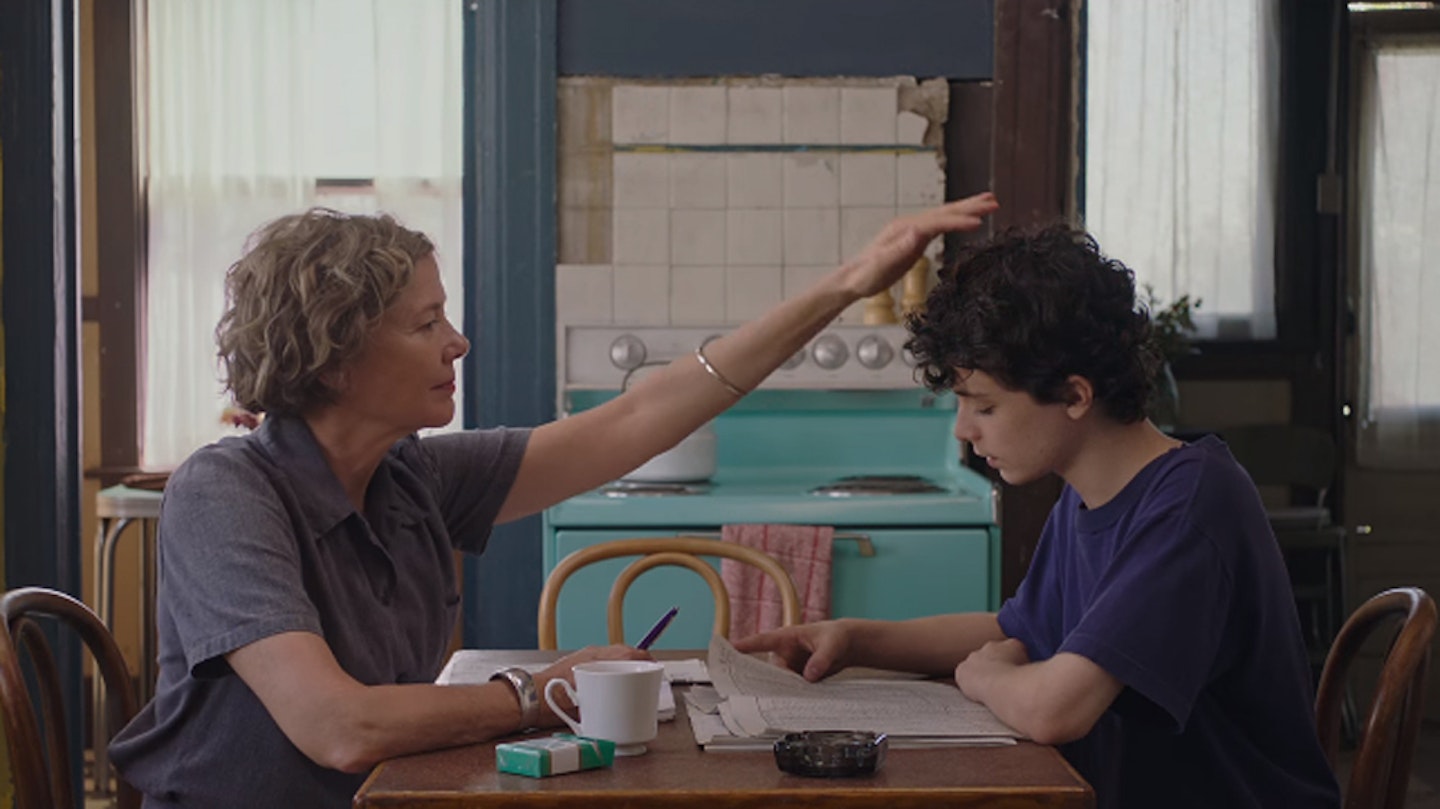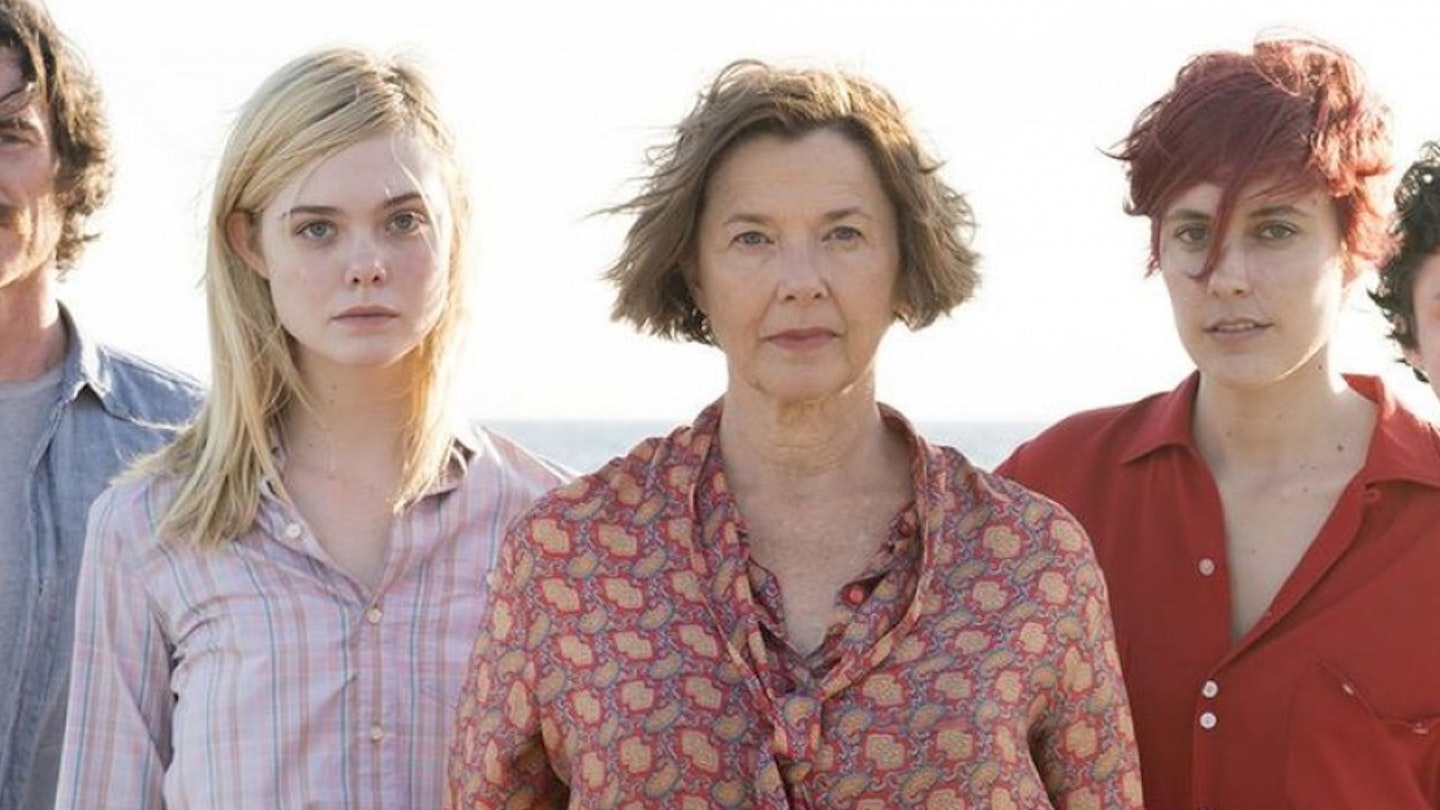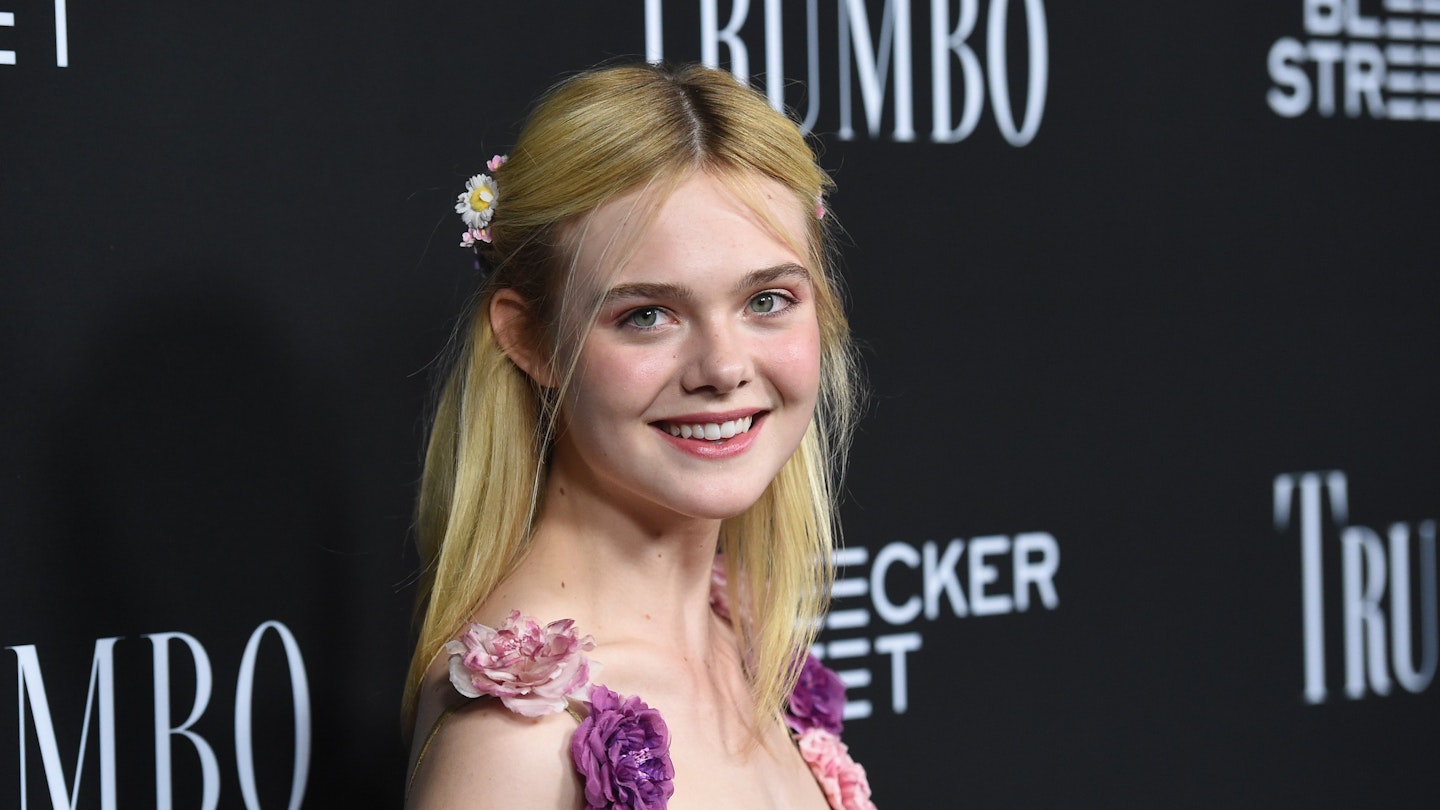Writer-director Mike Mills is no stranger to plundering his own past to provide the foundations for a perceptive study of a family at work. In his last film, Beginners, he remembered his father. This time he recalls the tender relationship he enjoyed with his mother, using this template to explore the way in which three females — provocative ingénue Julie (Fanning), twentysomething punk Abbie (Greta Gerwig) and laidback mum Dorothea (Annette Bening) — raise a single adolescent male (Lucas Jade Zumann).
An insightful and, on occasion, laugh-out-loud piece of filmmaking.
The young teenager (standing in for Mills) is Jamie, and he, much like America in 1979, is at a crossroads. We see his family and friends gathered around the TV watching Jimmy Carter’s crisis of confidence speech that ushers in the end of an era; the straight-laced Reagan is soon elected to the White House. Will Jamie also now live under a stricter regime? Certainly, the three women in his life all wonder if he might require more structure.
Does it take a man to raise a man, his mother asks? Apparently not. Realising there’s no man in his life with whom Jamie can connect — Billy Crudup’s household handyman is way too earthy — his mum asks his girl friend (two words — not ‘girlfriend’) and the household’s female lodger to help monitor her son’s maturation.
First up is Julie, who Jamie’s in love with. She’s a couple of years older than him but seems light years ahead — a child of group therapy, she yearns to be a woman. For her part, she teaches Jamie how to act cool around girls and explains why she sleeps with lots of guys, even though she enjoys it only half the time.

For her, sex and love are not always obvious bedfellows. Then there’s Abbie, a punk-loving photographer who’s getting to grips with the repercussions of cervical cancer. She is deep and dark and swimming in raw emotions. Through her, Jamie learns how to chat up, and pleasure, women. He also learns about punk.
But most importantly, there’s Dorothea herself, an enigmatic 55-year-old free spirit who pores over the stocks each morning, smokes Salem cigarettes (because they’re healthier) and never dates a man for very long. The input from these women, and the adventures upon which they and Jamie embark, are rendered in a varied and freeform manner; Dorothea’s narration gives us an ending before the film is complete.
In a way, the story echoes the feeling of memory, and for all the tumult and confusion besetting the protagonists, the film is bathed in a golden glow. Through Jamie, it’s a study of what makes a modern man, and we see, via the vagaries of the women’s lives, some of the multitudinous challenges that face the modern woman. Whether it is through Abbie’s response to her health issues or Dorothea’s concern over her perceived sexual and social redundancy, the film reveals much about the weaknesses and strengths, victories and defeats that accompany life’s journey.
After a couple of smaller roles, this is Zumann’s breakout, and he is more than competent, but it’s the three women who dazzle. They are vibrant, vulnerable and engaging, none more so than Bening — oozing wit and wisdom, she is a delight to behold.


